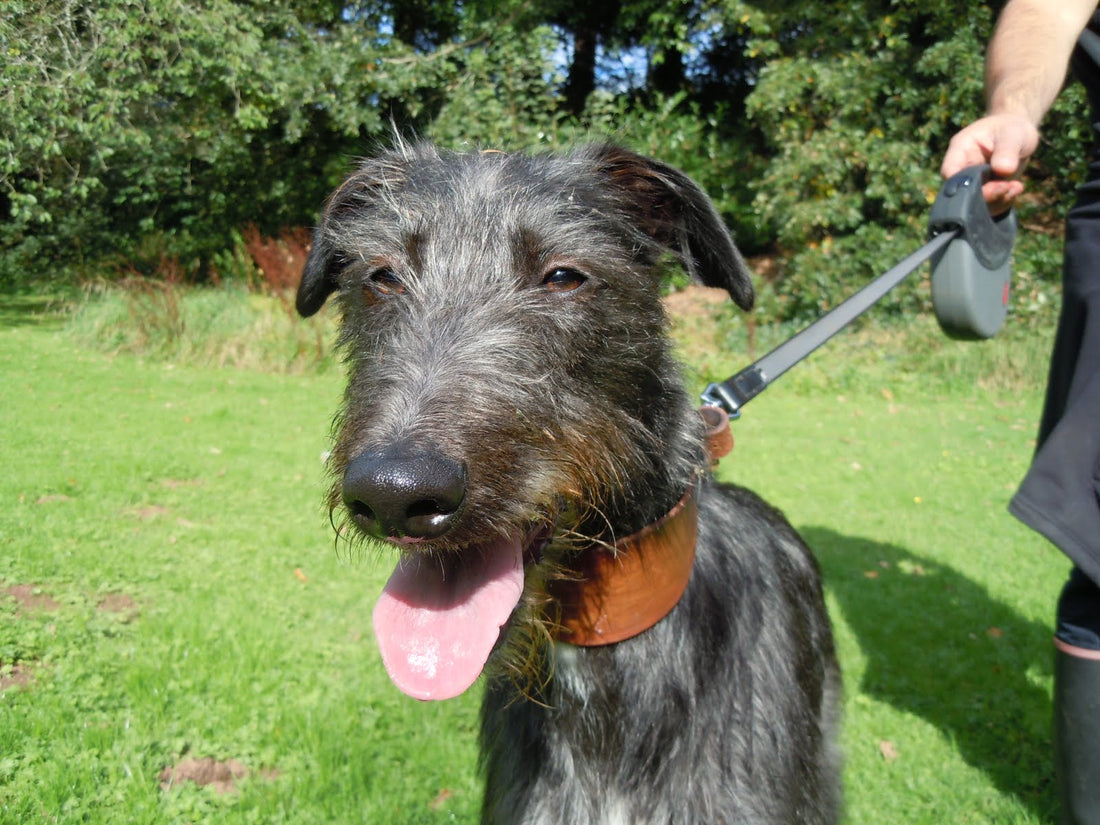
Do you have an Anxious or Nervous dog?
Share
Understanding and Supporting Nervous Dogs: A Guide for Pet Parents.

Having a nervous dog can present unique challenges for pet parents. Whether your furry companion was born with an anxious temperament or experienced trauma in their past, understanding and addressing their nervousness is crucial to ensure their well-being. In this blog, we will explore the world of nervous dogs, delve into potential causes of their anxiety, and provide practical tips to help support and comfort your furry friend.
- Identifying Signs of Nervousness:
Nervous dogs may display various signs of anxiety, which can manifest differently in each individual. Some common signs include excessive barking, trembling, panting, pacing, hiding, destructive behavior, aggression, or withdrawal. Recognizing these signs is the first step in addressing your dog's anxiety.
- Understanding the Causes:
a) Genetic Predisposition: Some dog breeds are more prone to nervousness due to their genetic makeup. Breeds such as Chihuahuas, Greyhounds, or Border Collies may have a higher likelihood of anxiety.
b) Traumatic Experiences: Dogs that have been through traumatic events such as abuse, neglect, or accidents may develop nervousness and fear-based behaviors as a result.
c) Lack of Socialization: Dogs that have not been adequately exposed to various environments, people, and other animals during their critical socialization period (typically between 3 to 14 weeks of age) may be more prone to anxiety.
d) Environmental Factors: Changes in the home environment, loud noises (thunderstorms, fireworks), new people or animals, or unfamiliar surroundings can trigger anxiety in dogs.
We have added a new range of t shirts to our shop - they are fantastic for warning other dog owners/ passerbys that your dog needs space. Ideal to avoid unnecessary stressful confrontations.
- Creating a Calm Environment:
a) Safe Space: Designate a specific area in your home where your dog can retreat when they feel anxious. This space should be quiet, comfortable, and filled with their favorite toys, bedding, and familiar scents.
b) Consistent Routine: Establishing a predictable daily routine can provide a sense of security for your dog. Regular feeding, exercise, and sleep schedules can help reduce anxiety.
c) Reduce Noise: Loud noises can be distressing for nervous dogs. Minimize noise levels by closing windows during thunderstorms or providing white noise (e.g., soothing music) to create a more calming atmosphere.
- Positive Reinforcement and Training:
a) Counter-Conditioning: Gradual exposure to feared stimuli, paired with positive reinforcement (such as treats or praise), can help desensitize your dog to anxiety-inducing situations.
b) Obedience Training: Teaching your dog basic obedience commands can enhance their confidence and establish a stronger bond between you. Positive reinforcement training methods work best for anxious dogs.
c) Avoid Punishment: Punishment-based training methods can escalate anxiety in nervous dogs. Instead, focus on rewarding desired behaviors and redirecting or ignoring unwanted behaviors.
- Seek Professional Help:
a) Veterinary Consultation: If your dog's anxiety is severe or significantly impairs their quality of life, consult with a veterinarian. They can assess your dog's overall health, provide behavior modification advice, and discuss the potential use of anti-anxiety medications if necessary.
b) Professional Dog Trainer or Behaviorist: Enlist the help of a qualified dog trainer or behaviorist experienced in working with anxious dogs. They can offer specialized guidance tailored to your dog's specific needs.
Living with a nervous dog requires patience, understanding, and a willingness to adapt to their unique needs. By creating a calm environment, employing positive reinforcement techniques, and seeking professional help when necessary, you can help your furry friend overcome their anxiety and lead a happier, more confident life. Remember, each dog is an individual, so finding the right approach may take time and experimentation. With love and support, you can make a significant difference!


